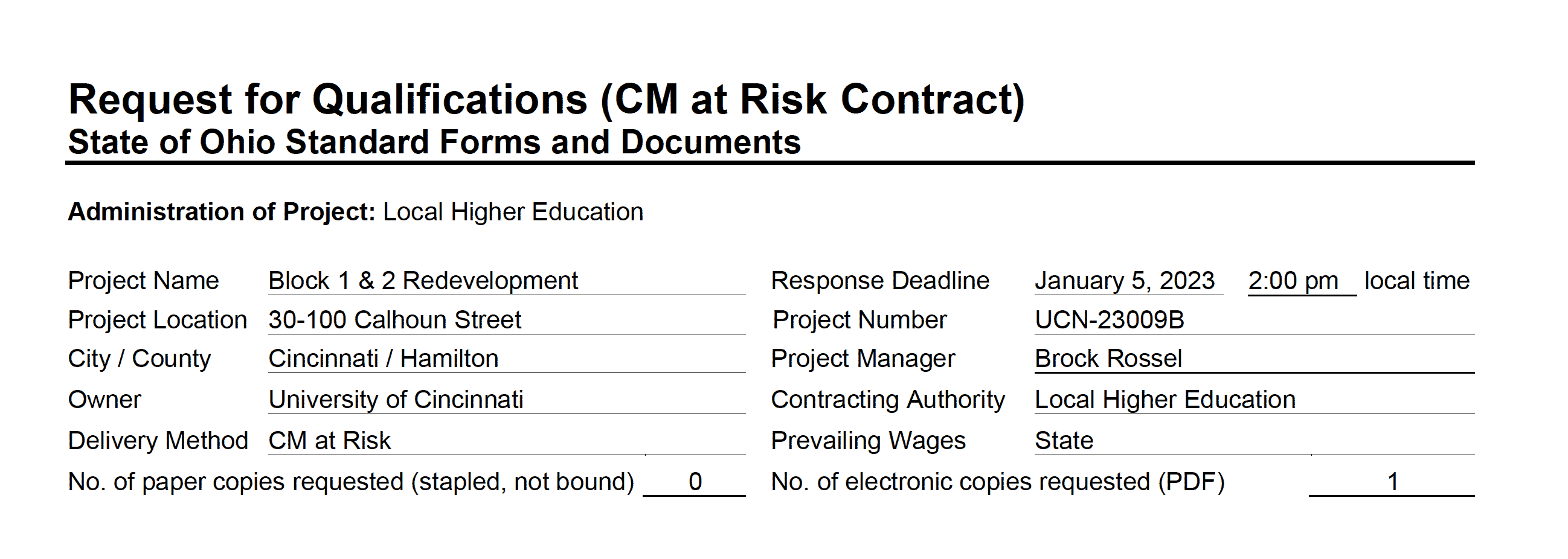Development of Academic Case Studies for Best Value Selection and Benefit / Discriminator Pairs
Investigators
Understanding and responding to a Request for Qualifications (RFQ) and Request for Proposals (RFP) is essential knowledge BSCI students need to acquire. Additionally, case-based learning is an effective approach to actively engaging students in the classroom, more so than lecture-based learning. Two separate case studies were developed to teach aspects of RFQ response. The first case study, “Contractor Procurement for Construction Manager at Risk and Design-Build Projects” focuses on describing the contents of a typical RFQ that an owner will develop, including how the owner would score a submitted Statement of Qualifications (SOQ), the contractor’s response to the RFQ. The case study exercise deals with comparing three separate RFQ scoring rubrics regarding similarities and differences, as well as fostering classroom discussion about how contractor may approach their SOQs differently based on how the owners would assess their submissions. The second case study, “Nailing the Proposal: Creating a Winning Strategy” centers on the development of benefit-discriminator (B/D) pairs during SOQ development. Students are provided information on what B/D pairs are, why they are essential to go/no-go analysis and proposal development/ They are also tasked with creating B/D pairs based on putting themselves in the shoes of an actual contractor and determining what aspects of those companies would be leveraged to differentiate the contractor from their competitors.

Related people:
Wesley Collins